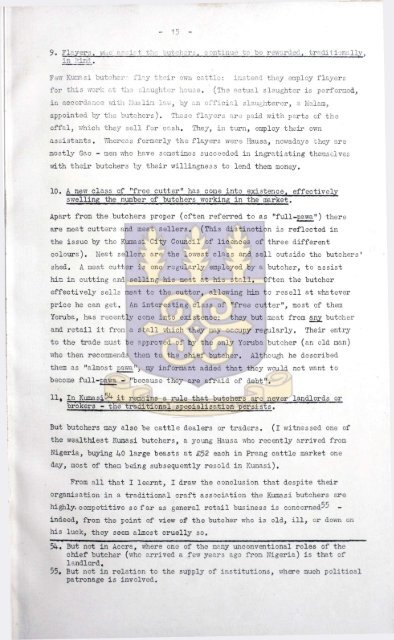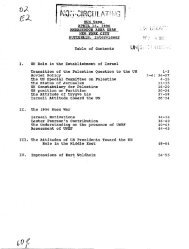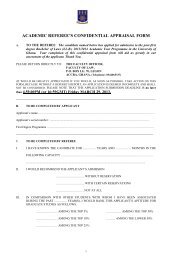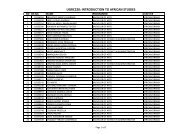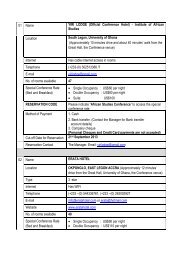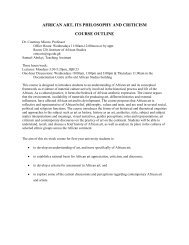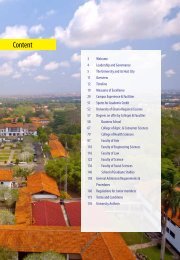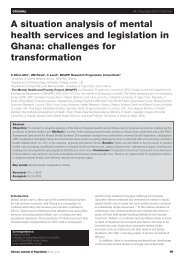View/Open - UGSpace - University of Ghana
View/Open - UGSpace - University of Ghana
View/Open - UGSpace - University of Ghana
- No tags were found...
You also want an ePaper? Increase the reach of your titles
YUMPU automatically turns print PDFs into web optimized ePapers that Google loves.
- 15 -9. Flayers, who a: j;t xho butcher,;, continue to be rewarded, traditionally.in hind.Few Kunasi butcher flay their own cattle: instead they employ flayersfor this work at the slaughter house. (The actual slaughter is performed,in accordance with Muslin law, by an <strong>of</strong>ficial slaughterer, a Malam,appointed by the butchers). These flayers are paid with parts <strong>of</strong> the<strong>of</strong>fal, which they sell for cash. They, in turn, employ their ownassistants. TThercas formerly the flayers were Hausa, nowadays they aremostly Gao - men 7/ho have sometimes succeeded in ingratiating themselveswith their butchers by their willingness to lend them money.10. A new class <strong>of</strong> "free cutter" has come into existence, effectivelyswelling the number <strong>of</strong> butchers working in the market.Apart from the butchers proper (<strong>of</strong>ten referred to as "full-pawa") thereare meat cutters and meat sellers. (This distinction is reflected inthe issue by the Kumasi City Council <strong>of</strong> licences <strong>of</strong> three differentcolours). Meat sellers are the lowest class and sell outside the butchers'shed. A meat cutter is one regularly employed by a butcher, to assisthin in cutting and selling his meat at his stall. Often the butchereffectively sells meat to the cutter, allowing him to resell at whateverprice he can get. An interesting class <strong>of</strong> "free cutter", most <strong>of</strong> themYoruba, has recently come into existence: they but meat from any butcherand retail i t from a stall which they may occupy regularly. Their entryto the trade must be approved <strong>of</strong> hy the only Yoruba butcher (an old nan)who then recommends them to the chief butcher. Although he describedthem as "almost pawa", my informant added that they would not want tobecome full-pawa - "because they are afraid <strong>of</strong> debt".11. In Kumasi^ i t remains a rule that butchers arc never landlords orbrokers - the traditional specialisation persists.But butchers may also be cattle dealers or traders. (I witnessed one <strong>of</strong>the wealthiest Kumasi butchers, a young Hausa who recently arrived fromNigeria, buying 40 large beasts at £52 each in Prang cattle market oneday, most <strong>of</strong> then being subsequently resold in Kumasi),From a l l that I lea.rnt, I draw the conclusion that despite theirorganisation in a traditional craft association the Kumasi butchers arehighly. competitive so far as general retail business is concerned^ -indeed, from the point <strong>of</strong> view <strong>of</strong> the butcher who is old, i l l , or down onhis luck, they seem almost cruelly so,54. But not in Accra, where one <strong>of</strong> the nany unconventional roles <strong>of</strong> thechief butcher (who arrived a few years ago fron Nigeria) is that <strong>of</strong>landlord,55. Eut not in relation to the supply <strong>of</strong> institutions, where much politicalpatronage is involved.


